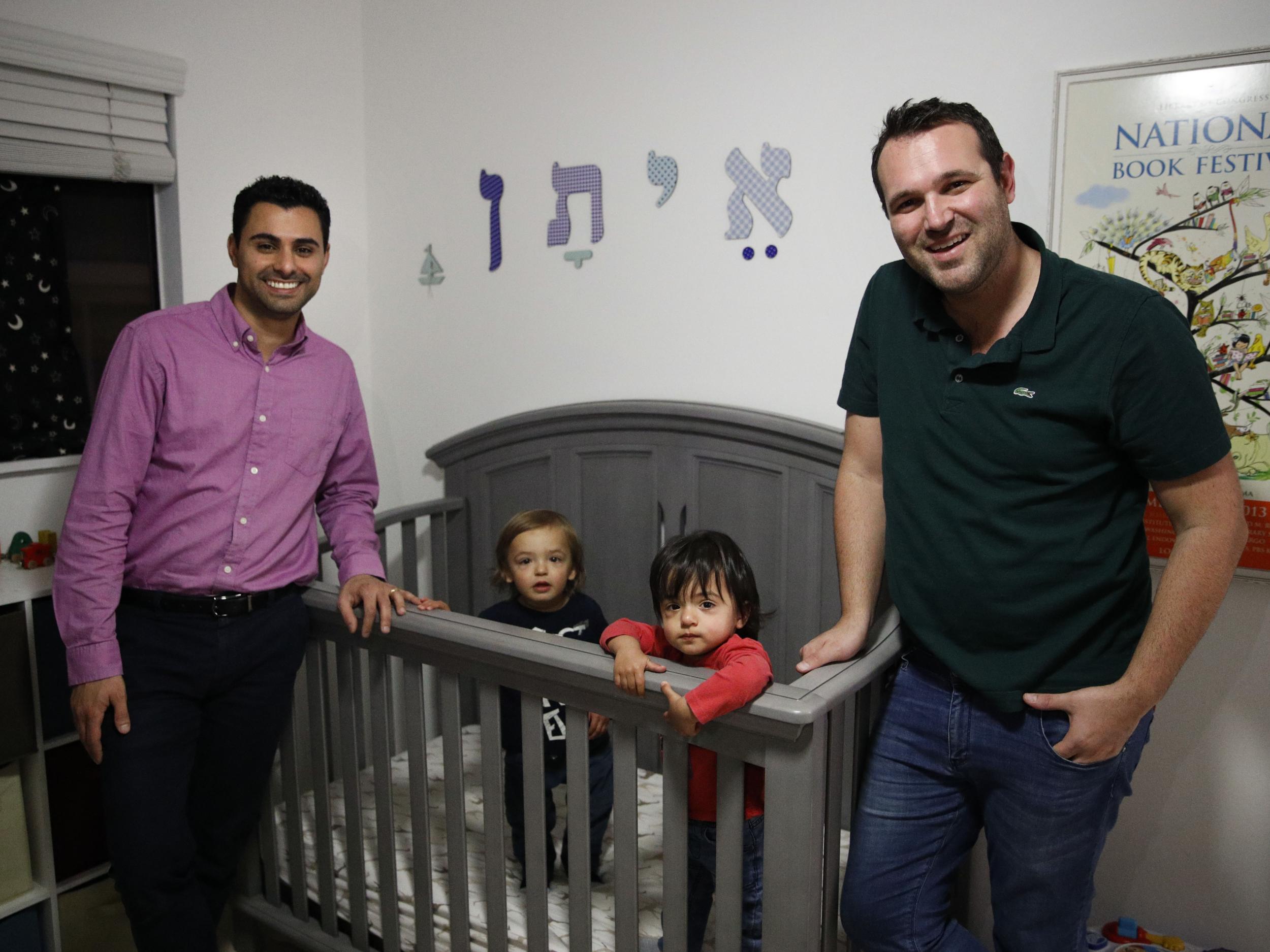Gay couple sue US government after only one of their twins receives citizenship
Andrew and Elad Dvash-Banks' sons were born two minutes apart from a surrogate mother

Your support helps us to tell the story
From reproductive rights to climate change to Big Tech, The Independent is on the ground when the story is developing. Whether it's investigating the financials of Elon Musk's pro-Trump PAC or producing our latest documentary, 'The A Word', which shines a light on the American women fighting for reproductive rights, we know how important it is to parse out the facts from the messaging.
At such a critical moment in US history, we need reporters on the ground. Your donation allows us to keep sending journalists to speak to both sides of the story.
The Independent is trusted by Americans across the entire political spectrum. And unlike many other quality news outlets, we choose not to lock Americans out of our reporting and analysis with paywalls. We believe quality journalism should be available to everyone, paid for by those who can afford it.
Your support makes all the difference.A gay couple are suing the US government after one of their twins received American citizenship, while the other had their request denied.
Andrew Dvash-Banks, a US citizen, and Elad, an Israeli, conceived Ethan and Aiden using donor eggs.
Both inseminated one of the eggs with their sperm before they were implanted into a surrogate mother.
In September 2016 she gave birth to the boys in Canada where the the couple had settled after getting married in 2010, because they were unable to do so in Israel or the US.
The boys were born two minutes apart.
When the couple decided to relocate to Los Angeles, they attended the American consulate in Toronto a few months later to apply for citizenship.
There, they said the woman at the counter began asking probing questions they found humiliating.
The consular official told them she had discretion to require a DNA test to show who the biological father was of each boy and without those tests neither son would get citizenship.
"I started crying," Andrew said. "These are twins, how can you differentiate between them? They were born minutes apart."
After submitting the DNA test results that proved who fathered each boy, the couple received a large and small envelope 2 March. The big one included Aiden's passport. The other was a letter notifying Andrew that Ethan's application had been denied.
The family has since moved to Los Angeles to be closer to Andrew’s family. Ethan came on a tourist visa that expired last month.
"He doesn't have legal status," Andrew said.
The US State Department insists Ethan cannot be granted citizenship since his genetic father is Elad.
To challenge what the parents view as an injustice, Ethan became a plaintiff at the tender age of 16 months in a federal lawsuit that seeks the same rights his brother has as an American citizen.
"What we're trying to do is pursue justice for Ethan and correct a wrong that the State Department is continuing to pursue that might affect other couples," Elad said.
The lawsuit was one of two filed earlier this by an LGBTQ immigrant rights group that said the State Department was discriminating against same-sex bi-national couples by denying their children citizenship at birth.
The cases filed in Los Angeles and Washington by Immigration Equality said the children of a US citizen who marries abroad are entitled to citizenship at birth no matter where they are born and even if the other parent is a foreigner.
The State Department said it doesn't comment on pending litigation, but pointed to guidance on its website that says there must be a biological connection to a US citizen to become a citizen at birth.
Aaron Morris, executive director of Immigration Equality, said the State Department is wrongly applying a policy for children born out of wedlock to married same-sex couples.
"If a mother and father walk into a consulate and have a marriage certificate and birth certificate, they're never asked any questions about the biology of the child," he said. "But the converse is also true and every same-sex couple will be asked that."
The other case involves two women, one from the US and one from Italy, who met in New York, married in London and each gave birth to a son. The State Department did not recognise the couple's marriage, the lawsuit said, and only granted citizenship to the boy whose biological mother was born and raised in the US.
Citizenship issues frequently arise with births overseas — even for heterosexual US citizens — and particularly with the use of artificial insemination and surrogates, said immigration lawyer Ally Bolour, who is not involved in the lawsuit.
The Supreme Court's rejection in 2013 of the Defense of Marriage Act (DOMA), which had barred the federal government from recognizing same-sex marriages, opened the door to the potentially ground-breaking challenges now being brought, he said.
"This is an absolutely fascinating, cutting edge area of law that stems from (DOMA) being overturned," Ms Bolour said. "It was just a matter of time for this issue to be decided by the courts."
Additional reporting by AP
Join our commenting forum
Join thought-provoking conversations, follow other Independent readers and see their replies
Comments